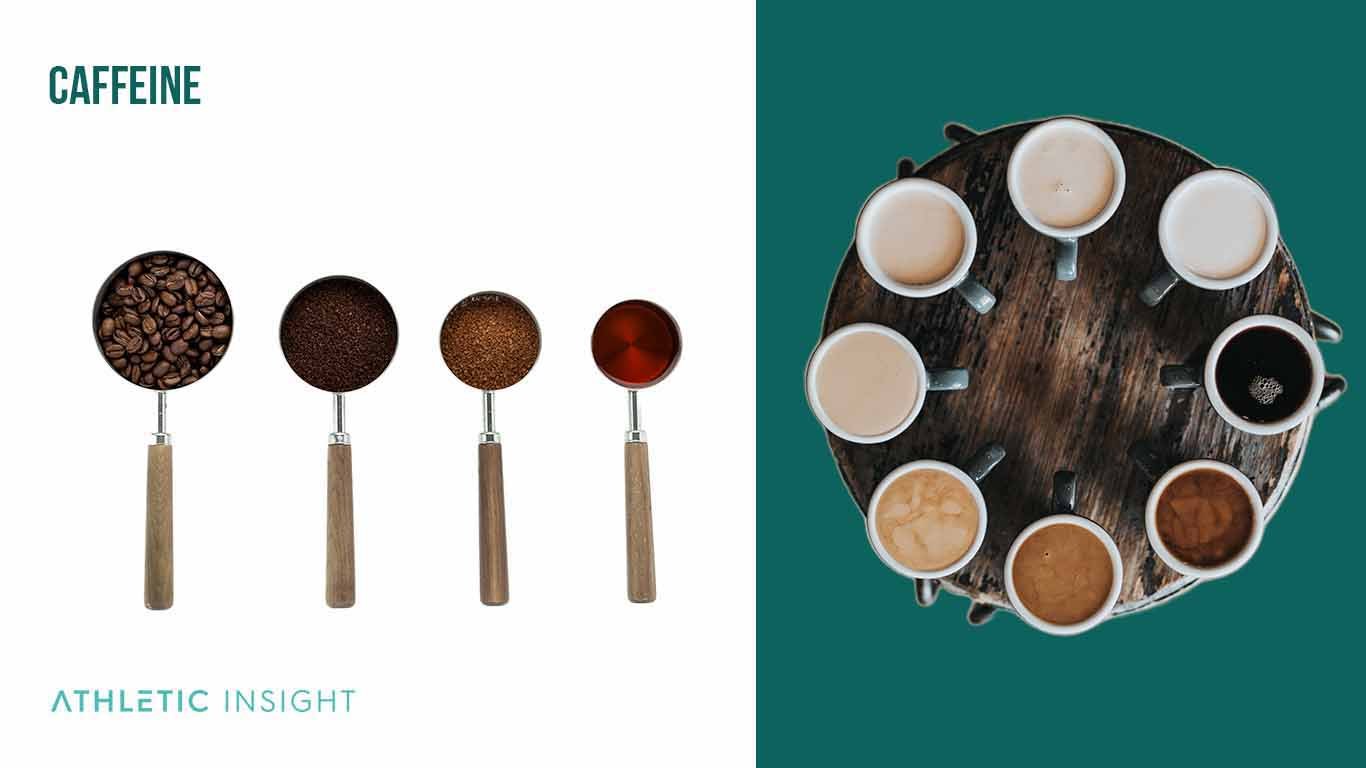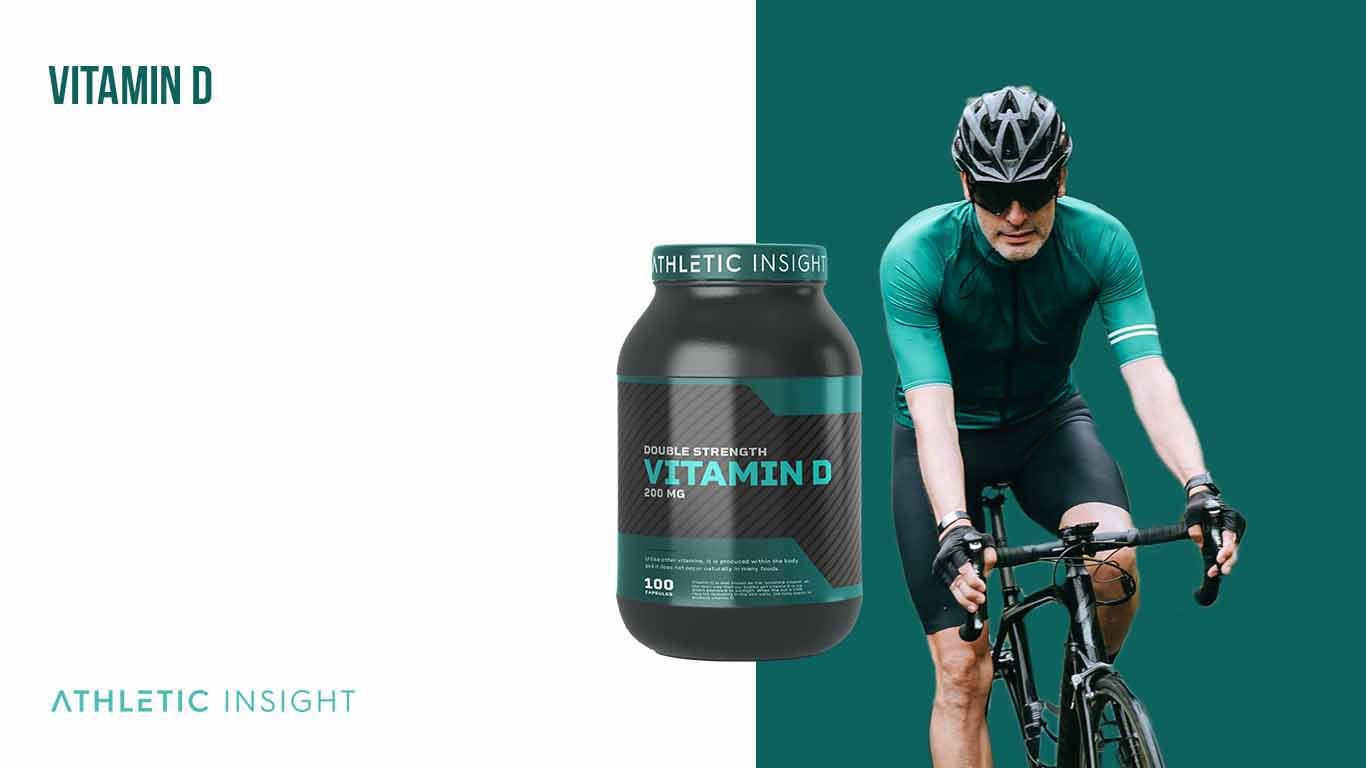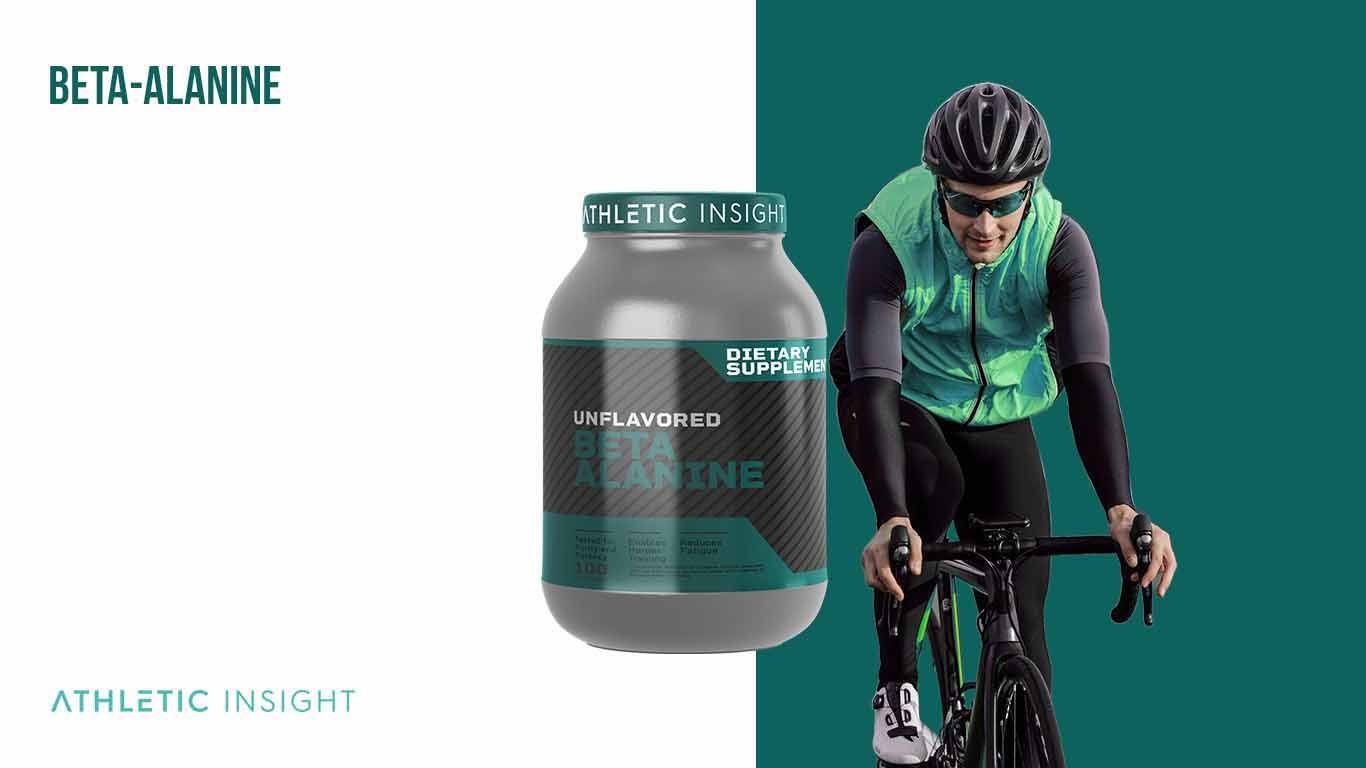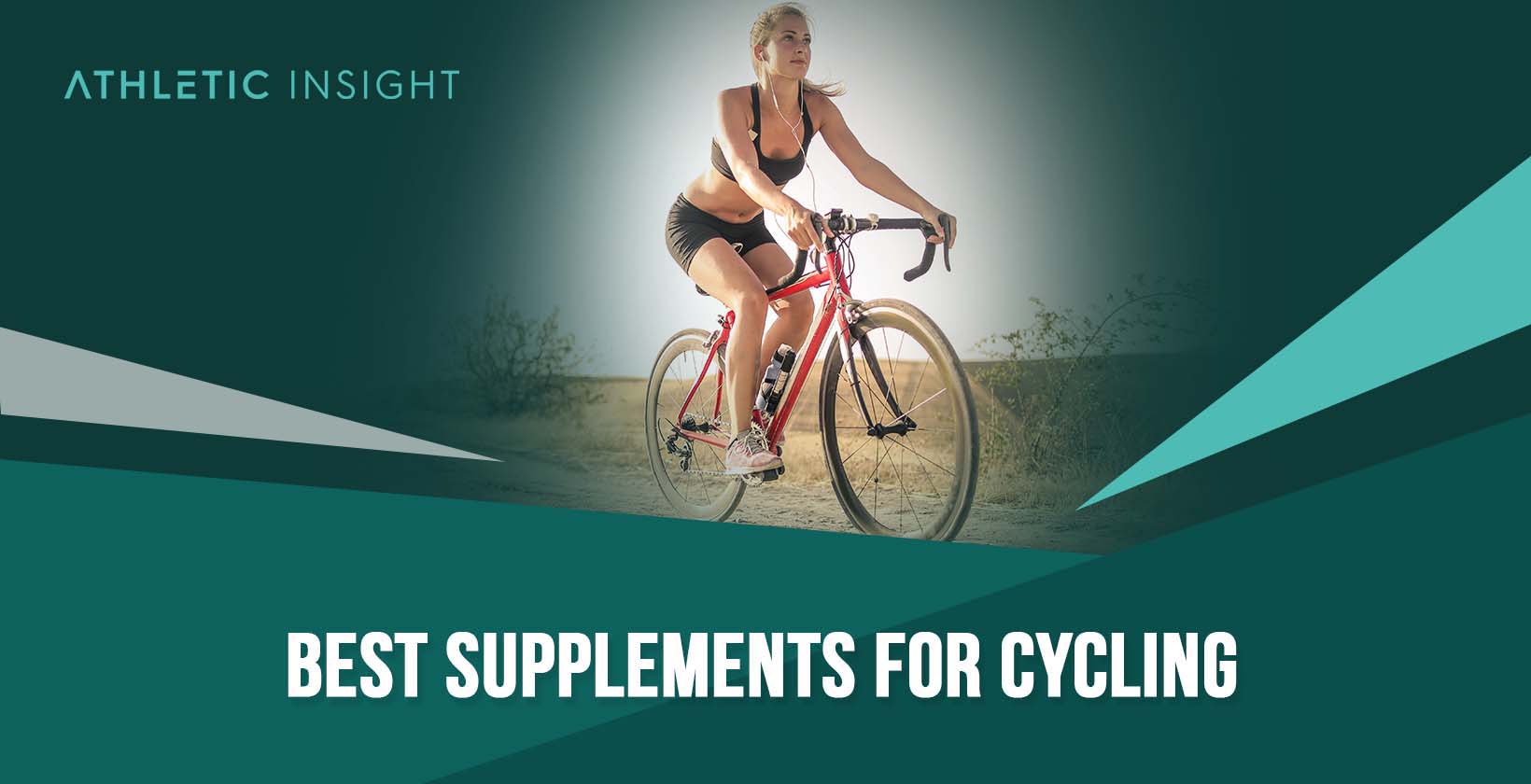The best supplements for cycling help cyclists boost performance during intense training sessions or races by providing the necessary nutrients to sustain energy levels. Cycling supplements address distinct deficiencies to improve power, boost energy levels, and build healthy bones and muscles.
How supplements work and their results depend on each individual’s needs and when the cyclist takes them. For example, the best pre-workout for cyclists should fulfill different needs than a post-workout option.
The best pre-workout for cycling should factor in hydration while including caffeine, creatine, and carbohydrates. A post workout or recovery supplement should replace what the athlete lost during exercise, like protein and electrolytes.
The perfect way to compare the best supplements for cyclists is to check the benefits and negative impacts they may have on the body. It also helps to compare the ingredients in the supplements and consider researching any unknown or unrecognizable additives.
While numerous supplements improve cycling performance, the top three supplements for cycling are caffeine, magnesium, and creatine. The best cycling supplements include the following.
Athletic Insight Top 5 Products
- Caffeine >>> Best Caffeine Supplement
- Magnesium >>> Best Magnesium Supplement
- Creatine >>> Best Creatine Supplement
- Vitamin D >>> Best Vitamin D Supplements
- Iron >>> Best Iron Supplements
- Caffeine
- Magnesium
- Creatine
- Vitamin D
- Iron
- Calcium
- Whey Protein
- Electrolytes
- Beta Alanine
- Nitrate
- Fish Oil
1. Caffeine
Caffeine is a natural stimulant that can increase alertness and improve performance. Under normal conditions, adenosine slowly builds up in brain receptors when ATP gets broken down, making people feel sleepy. Caffeine functions as an adenosine inhibitor by attaching these receptors and momentarily prevents their activation.

Caffeine may also help burn more fat during exercise. A study at the Georgia Institute of Technology found that taking caffeine before cycling can help to reduce glycogen in the liver and muscle tissues by up to 50%.
Excessive consumption of caffeine supplements for cycling might have a detrimental impact, leading to symptoms such as nausea, nervousness, and gastrointestinal problems.
Regular caffeine dosages begin at about 100 mg. However, the optimum dose depends on total body weight. Scientific research shows that the beneficial dosage is 3 milligrams per kilogram of body weight.
The best brands for purchasing caffeine capsules are NutraBio, Performance Lab, and Bulksupplements. The price varies by dosage, ranging between $10 and $50.
2. Magnesium
Magnesium is an alkaline earth metal that is crucial for producing energy during exercise. The molecule adenosine triphosphate (ATP) carries chemical energy for metabolism. It becomes ineffective without the metal.
The ideal time for cyclists to take magnesium supplements is immediately after exercise when their muscles need replenishing to recover from overexertion quickly.
Magnesium, particularly when taken in excessive quantities, can give rise to gastrointestinal distress in the form of diarrhea, nausea, and vomiting.
Depending on the brand, daily dosages for magnesium supplements range from 200 to 400 mg. Some reputable brands that sell magnesium include BrainMD, MegaFood, Trace Minerals, and Pure Encapsulations. The price ranges from $10 to $30 depending on the quantities you buy.
3. Creatine
The body spontaneously produces creatine from amino acids. This substance has the energy to support cellular processes when under stress. Cyclists need far more creatine than the typical individual, who consumes roughly 2 grams daily.
As per research, creatine helps cyclists build muscle and improve performance and recovery. It increases the body’s ability to regenerate adenosine triphosphate (ATP).
Excessive consumption of creatine supplements or failure to hydrate adequately might cause negative side effects, including stomach pain and cramps. Supplementing with creatine between 5 and 30 grams daily may be safe for cyclists.
Some brands that sell exceptional creatine for cycling are Thorne, KAGED, Crazy Nutrition Transparent Labs, and Jacked Factory. Most creatine supplements cost about $30, but the price varies with the number of servings in the package.
4. Vitamin D
Vitamin D is a fat-soluble vitamin that comes from exposure to sunlight or by ingesting certain foods, like salmon and fortified orange juice. A lack of this essential vitamin can lead to symptoms such as lethargy and slow wound healing.

Research has also shown that vitamin D can improve recovery from exercise by reducing muscle soreness, increasing aerobic performance, and improving strength gains. It stimulates and inhibits the creation of neurotransmitters, which in turn aids in nerve repair and development.
Consuming extremely high amounts of vitamin D might lead to toxicity, which can induce symptoms such as fatigue, nausea, vomiting, and disorientation.
In some cases, maintaining appropriate vitamin D levels in the blood requires a daily intake of 600 IU. Thorne, Ora Organics, and BrainMD are the top three vitamin D brands. Expect to pay between $15 and $50 for vitamin D supplements.
5. Iron
Iron is a crucial mineral found in human blood that helps create new red blood cells. When ferritin levels drop below 20 micrograms/L, the body responds by producing less of the proteins that transport iron, leading to a shortage of this essential nutrient for the body’s cells.
An iron deficiency can result in anemia which causes fatigue, weakness, and lightheadedness. It can progress to more extreme conditions, including heart and respiratory problems.
Conversely, too much iron can create a host of digestive problems, including diarrhea and vomiting.
Iron supplements are one of the best pre-workouts for cycling to high elevations. In those conditions, the body’s iron reserves deplete quickly due to the rapid rise in red blood cell formation, which is necessary to create extra hemoglobin.
Excessive consumption might cause gastrointestinal tract damage. Organs, including the liver and brain, are particularly vulnerable to the long-term effects of iron overload, which can be fatal.
Generally, an individual’s age and gender determine the appropriate quantity of iron they should consume daily. Regular exercisers require more dietary iron than sedentary individuals, but the optimal daily consumption for adults is 8 mg for males and 18 mg for females.
The top three brands that sell iron supplements are Ora Organincs, BrainMD, and Thorne, with an average price tag of $10 to $30 per bottle depending on size.
6. Calcium
Calcium is the most plentiful mineral in the human body. It helps in muscle contraction and nerve transmission while facilitating the growth and development of healthy tissues and bones.
Research on the best calcium cycling supplements in 2020 reveals it helps muscles contract more efficiently and relax, increasing cyclists’ power output.
Some individuals may experience bloating and gas. In addition, excessive calcium intake can cause kidney stones and soft tissue calcification.
Cyclists can take a daily dose of 1,000 milligrams, while those over 50 can take 1,200 milligrams.
The best calcium brands for cycling are Thorne, Designs for Health, NOW Supplements, and Rootine. Expect to pay between $10 and $60 for calcium supplements.
7. Whey Protein
Whey protein is one of the two proteins that make up milk, the other being casein. Whey is the liquid that’s left over after straining milk. For this reason, whey often gets referred to as a complete protein.
Whey protein is an effective endurance supplement for cyclists, improving recovery from workouts and preventing injury. Studies show that whey is superior to other dietary proteins in promoting muscle growth and immunity. It also contains high amounts of branched-chain amino acids (BCAAs) that reduce fatigue during training and improve recovery after exercise.
Cyclists will have a higher need for protein. Regular cyclists should get between 1.2 and 1.6 grams of protein per kilogram of body weight to fuel their muscle growth and repair. Research shows that whey protein supplements have consistent adverse effects, including acne, liver damage, oxidative stress, renal disease, and gastrointestinal distress.
Thorne, Optimum Nutrition, MyProtein, Crazy Nutrition, MET-RX, Ora Organics, and Transparent Labs are some the best whey protein brands for cycling. Whey protein supplements cost between $30-$60 per bottle depending on servings.
8. Electrolytes
Electrolytes are minerals that move through the body and help maintain balance. An electrolyte deficiency can lead to cramps, weakness, and fatigue during exercise.
Taking in more water than usual during exercise dilutes the body’s natural salt balance, increasing fluid loss and increasing thirst. As a result, electrolyte cycling performance enhancing supplements intake is crucial for preserving the body’s sodium equilibrium.
Excessive consumption of electrolytes may result in gastrointestinal problems and kidney stones. Hyperkalemia might also result from excessive use of potassium-rich electrolyte supplements. Individuals with kidney disease may experience severe effects from hyperkalemia.
Electrolyte supplements are available as powders, liquids, tablets, or capsules. Athletes should consume about 50 milligrams per kg.
The best electrolyte brands for cycling are LMNT, Liquid IV, Zeal Naturals, and Nuun Sport. Price varies with the brand, but a month’s supply can cost around $20.
9. Beta-Alanine
Beta-alanine is a non-essential amino acid with beneficial performance effects. It’s the building block of a metabolite known as carnosine. During intense exertion, carnosine buffers muscular acidity.

Beta-alanine is one of the best cycling supplements because it allows for sustained effort. Scientific studies reveal that supplementation with beta-alanine increases cycling performance near the end of a training session.
Paresthesia, or a tingling feeling, is a common side effect of using beta-alanine supplements. Depending on the individual, the average daily dosage ranges from 2 to 8 grams, taken in equal portions throughout the day.
The best beta-alanine supplements are Transparent Labs, Thorne, NOW Sports, and Optimum Nutrition. A monthly dosage of beta-alanine may cost $30 to $50.
10. Nitrate
Nitrate rapidly metabolizes into nitrite after ingestion. Nitrite transforms into nitric oxide when it binds with tissues with lower oxygen content, like working muscles.
Nitric oxide promotes the dilation of blood arteries, which increases blood flow and oxygen flow to the body’s most vulnerable regions. Muscle cells contract to generate more energy during exercise. Nitric oxide enhances the process rendering it one of the best supplements for endurance cycling.
Excess nitrate consumption may result in methemoglobinemia, triggering symptoms such as fatigue and nausea.
Research indicates that athletes can attain the greatest gains in performance by consuming 5-8 mmol of nitrate two to three hours before practice.
The best nitrate brands for cycling are Thorne, Huge Supplements Magnify, Onnit Total, and Huge Supplements. One month’s dosage costs between $20 and $40.
11. Fish Oil
Fish oil is a source of omega-3 fatty acids, an essential fat with several positive health effects, including lowering inflammation and bolstering joint health.
Although there is no hard and fast rule about the cycling supplements’ endurance dosage, most experts agree that athletes should get between 250 and 500 milligrams of EPA, DHA, and other omega-3s daily.
Some brands leave a fishy aftertaste, with the majority having mild adverse side effects such as nausea, diarrhea, and heartburn.
Some of the best fish oil brands for cycling are Thorne, Ora Organics, Nordic Naturals, and BrainMD. Reputable brands typically cost between $15 and $40.
What Are Cycling Supplements?
Cycling supplements are a kind of dietary health supplement explicitly targeted at cyclists. These supplements come with natural ingredients like fish and coffee. Some supplements, such as protein powder for cyclists, can be taken as an after-exercise or post-workout recovery supplement.
How To Choose the Best Cycling Supplement
Cycling supplements can help athletes perform better and recover faster, but they aren’t all ideal for every individual. Consider the factors below when choosing supplements for cyclists.
- Quality: Investigate the manufacturer’s testing procedures and the ingredients’ quality. Check online reviews to determine if a specific cycling supplement comes from a reputable brand.
- Ingredients list: Select a supplement that makes sense based on typical workouts and physical needs. For example, lactose intolerant athletes should look for lactose-free supplements.
- Supplement price: Price is a huge determinant as people always look for reasonably priced, high-quality supplements.
- Taste and texture: Most people will not use a product they do not enjoy, even if it’s proven to work.
- Consult with a doctor: Ensure to discuss supplements with a doctor. Physicians and nutritionists can help athletes find the right supplement.
What Is the Best Cycling Supplement for Endurance?
All supplements for cyclists provide endurance benefits, but these are the best supplements for endurance cycling; Beta-Alanine (Best Overall), Caffeine (Best for Stimulation), Whey Protein (Best for Muscles), Creatine (Best for recovery).
- Beta-Alanine: Beta-alanine is an amino acid that boosts carnosine levels in the muscles and decreases lactic acid levels. It can also improve muscle strength and endurance.
- Caffeine: Caffeine is a stimulating substance in coffee, tea, and energy drinks. Scientific studies suggest that consuming moderate caffeine can enhance energy and decrease weariness for several hours.
- Whey Protein: Since protein is an alternative fuel source during extended activity, it is essential to consume enough whey protein to prevent muscle breakdown. As one of the best endurance supplements for cyclists, whey protein accelerates fat loss and preserves muscle mass.
- Creatine: Creatine is an effective post exercise supplements for cyclists as it aids in active recovery and helps to store water in the muscles which aids in work output during the actual cycling.
What Is the Best Pre-Workout for Cyclists?
Pre-workout supplements help in maximizing cycling performance and increasing energy. Below are the best pre-workouts for cycling.
- Creatine: Creatine is an essential supplement to cyclist health as it helps increase muscle mass and overall strength. Athletes should not take creatine regularly but in cycles to increase the supplement’s effectiveness.
- Beta-Alanine: Beta-alanine helps in buffering muscle acidosis, reducing fatigue in regular cyclists. In addition, research shows that beta-alanine increases the average cycling power.
- Fish Oil: Fish oil supplements reduce inflammation and improve the bone health of a cyclist. Several studies show that cyclists taking fish oil supplements regularly need less oxygen and maintain the recommended heart rate during their cycling sessions. Regular fish oil intake may minimize the possibility of developing cardiovascular diseases in cyclists. Like other cycling vitamins, fish oil increases physical power output.
What Is the Best Creatine for Cyclists?
Most commercially available supplements that include creatine are often in the form of a monohydrate. Here are the best creatine supplements for cyclists with Thorne taking the number one spot.
- Thorne Creatine: Clinically researched and tested, Thorne’s creatine is NSF certified and the best overall creatine product on the market for cyclists.
- KAGED Muscle Creatine HCl: The supplement contains creatine HCl, which calls for an average dose lower than monohydrate. The creatine supplement is pure and has no artificial additives. KAGED improves muscle and cycling power if taken in the correct dosage.
- Transparent Labs Creatine HMB: The supplement comes in nine delectable flavors, so cyclists are most likely to find one that suits their tastes. Transparent creatine helps cyclists in muscle retention. Cyclists who are allergic to black pepper should consider other options, as it’s one of the main ingredients in this supplement.
- Jacked Factory Creatine: Athletes seeking a high-quality, low-cost creatine supplement, may want to consider Jacked Factory’s Creatine Monohydrate. The manufacturer designed Jacked to provide optimal athletic performance, increase muscle growth, and improve recovery.
Who Can Take Cycling Supplements?
The American Academy of Family Physicians advises that every cyclist looking to maximize their performance during high-intensity activity should consider cycling supplements because they are safe. However, not every cyclist needs these supplements, as some professional riders forego them and still excel.
Why Should Cyclists Take Supplements?
Cycling is an endurance sport, so it requires a lot of energy and can be quite demanding on one’s body. Cyclists may use supplements for cycling to make up for the difference between what they eat and what their bodies need.
Research also suggests that to prevent prevalent nutritional deficits, highly active individuals might require higher levels of critical nutrients that help in energy production and muscle recovery.
Regular cycling can result in dehydration and loss of essential electrolytes. Athletes should consider cycling supplements to replace lost salts and minerals to maintain the ideal balance for better recovery and performance.
Is a Supplement for Cyclist Expensive?
No, supplements for cycling aren’t expensive, but the price varies depending on the brand and servings the body requires. Cycling supplements can cost as low as $10 for a monthly dosage. However, supplements from reputable brands and those with extra nutrients may cost between $40 and $100 for a month’s supply.



